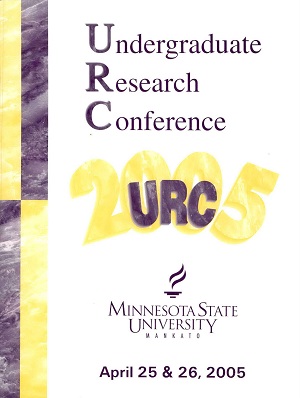Applying Early Existential Critiques to Contemporary Themes in American Culture
Location
CSU 285
Start Date
25-4-2005 3:15 PM
End Date
25-4-2005 5:30 PM
Student's Major
Philosophy
Student's College
Arts and Humanities
Mentor's Name
Craig Matarrese
Mentor's Department
Philosophy
Mentor's College
Arts and Humanities
Description
Charles Taylor, Carl Elliot, Alexis De Tocqueville, and Lionel Trilling have presented and critically analyzed a number of ideals that animate currents in contemporary American Culture, which include authenticity, sincerity, pluralism, subjectivism, and selfactualization, but these ideals do not harmoniously coexist; rather, they inevitably conflict. These notions have been realized in a way that is unique in their current understandings. Though there is the appearance of some homogeneity amongst these themes, they inevitably clash and contain internal tensions. The philosophers Kierkegaard and Nietzsche respond to many of the ideas that underlie these modem notions. Though differing in degrees, these critiques anticipate many of the problems that have arisen within discussion of contemporary culture. The themes that Taylor, Elliot, De Tocqueville, and Trilling outline are not limited to those notions that Kierkegaard and Nietzsche criticized. Rather, some cultural attitudes find their lineage in their respective philosophies. Both the historical tradition behind, and the contemporary definitions of these themes, need to be understood in order to explain the fragmented nature of contemporary culture. Kierkegaard and Nietzsche offer a historical perspective to the definitions given by Taylor, Elliot, and Trilling. Understanding the multifarious and contradictory foundations of contemporary culture is essential to demonstrating the potential paradox of realizing a consistent language of contemporary culture, and may include the inability to uphold these themes.
Applying Early Existential Critiques to Contemporary Themes in American Culture
CSU 285
Charles Taylor, Carl Elliot, Alexis De Tocqueville, and Lionel Trilling have presented and critically analyzed a number of ideals that animate currents in contemporary American Culture, which include authenticity, sincerity, pluralism, subjectivism, and selfactualization, but these ideals do not harmoniously coexist; rather, they inevitably conflict. These notions have been realized in a way that is unique in their current understandings. Though there is the appearance of some homogeneity amongst these themes, they inevitably clash and contain internal tensions. The philosophers Kierkegaard and Nietzsche respond to many of the ideas that underlie these modem notions. Though differing in degrees, these critiques anticipate many of the problems that have arisen within discussion of contemporary culture. The themes that Taylor, Elliot, De Tocqueville, and Trilling outline are not limited to those notions that Kierkegaard and Nietzsche criticized. Rather, some cultural attitudes find their lineage in their respective philosophies. Both the historical tradition behind, and the contemporary definitions of these themes, need to be understood in order to explain the fragmented nature of contemporary culture. Kierkegaard and Nietzsche offer a historical perspective to the definitions given by Taylor, Elliot, and Trilling. Understanding the multifarious and contradictory foundations of contemporary culture is essential to demonstrating the potential paradox of realizing a consistent language of contemporary culture, and may include the inability to uphold these themes.




